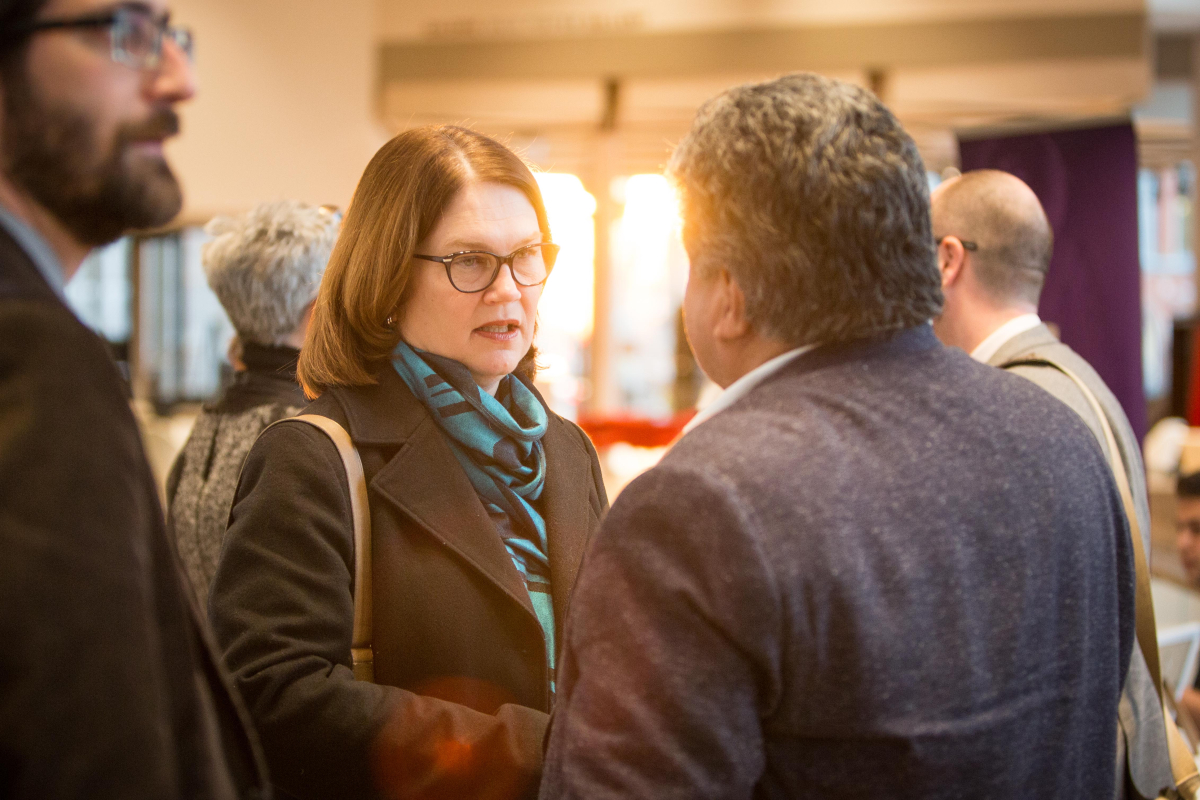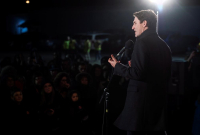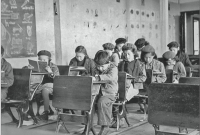Support strong Canadian climate journalism for 2025
A prominent Indigenous leader says he’s alone in pressing the government to fix a “racist” proclamation in Canada’s constitution.
Canada’s Indigenous services minister, however, says the government is “very actively” discussing a “framework” for the recognition of Indigenous rights, and to look for more information in the “months to come.”
The tit-for-tat occurred during a wider discussion on embedding Indigenous rights in the constitution — a decades-long issue that is getting a new look in a new era of reconciliation.
At issue is the future of one of Canada's foundational documents, the Royal Proclamation of 1763, which laid out Crown-Indigenous relations over a century before Confederation, but which Indigenous leaders have long said has never been truly followed.
Senator Murray Sinclair, who served as chief commissioner of the 2015 Truth and Reconciliation Commission (TRC), has frequently promoted the commission's recommendation for the creation of a new royal proclamation by the Crown.

A new proclamation, Sinclair says, would bind the federal government and Indigenous peoples in a new nation-to-nation relationship in a way that legally protects it from future governments moving to tear it down.
It was a key recommendation of the TRC, and came almost two decades after the 1996 Royal Commission on Aboriginal Peoples, which made the same call.
The question of Indigenous right to self-government goes back even farther, appearing in the defeated 1992 Charlottetown Accord.
It's not clear exactly what roadmap the government would follow to issue a new royal proclamation.
At a summit on the relationship between Indigenous peoples and government in Ottawa on Tuesday, Sinclair accused the Trudeau government of continuing to skate around the issue.
“At this time, I do not see the question of a royal proclamation on the government’s agenda,” he said in response to a question from the audience, after giving a speech at a summit hosted by the Institute on Governance, at Ottawa's National Arts Centre.
“No one has raised it but me.”

'No relationship that's more important'
Prime Minister Justin Trudeau says reconciliation with Indigenous peoples is a top priority, and his government is moving to implement all calls to action in the TRC report.
In September, Trudeau used the top platform in international politics, the United Nations General Assembly, to discuss "the legacy of colonialism in Canada." This month he formally apologized to Newfoundland and Labrador residential school survivors.
His government also recently signaled its support for a private member's bill which would require full implementation of the UN Declaration on the Rights of Indigenous Peoples.
“There’s no relationship that’s more important to us than the relationship with Indigenous peoples," Indigenous Services Minister Jane Philpott said in an interview on the sidelines of the summit.
The government has launched a "working group" of ministers in February 2017 that will review its laws and policies related to Indigenous peoples.
That group is tasked in part with supporting the implementation of the TRC’s 94 calls to action, including the question of a new royal proclamation. Philpott said it's engaged in the work of developing a new "framework" of rights.
“I’d be happy to reassure [Sinclair] and others that the discussion around documenting our government’s firm commitment to a recognition of rights framework is something that we’re discussing very actively,” Philpott told National Observer, when asked whether the government was discussing a new proclamation.
“I can assure Canadians that this is something that we’re certainly discussing, and with our commitment to support the [UN declaration], you can look forward to more information about that in the months to come."
Sinclair said during his speech that the time it would take to develop a new royal proclamation is “likely not going to fit into the amount of time before the next federal election.”
“I think we’re talking years and not simply months,” he argued.
But the minister dismissed Sinclair’s argument that the process to create a new royal proclamation would necessarily take that long.
"We have two years to go before the next election, so there’s plenty of time to prioritize issues like this,” she said.

Why the TRC called for a new proclamation
The Royal Proclamation of 1763 is important because it shows that Great Britain recognized that Indigenous peoples had an inherent right to their own land.
It described them as “several nations or tribes of Indians with whom we are connected” — in other words, a description of a nation-to-nation relationship.
“Canadians have to understand that when we say ‘nation’ we’re not talking about our communities,” said Ovide Mercredi, the president of the Manitoba New Democratic Party and a former Assembly of First Nations national chief.
“Our communities are where people live. Their nation [on the other hand] is the identity of their people, the culture of their people, the language of their people, the territory of their people.”
The Royal Proclamation defined the treaty-making process, and is referenced in Section 25 of the constitution's Charter of Rights and Freedoms.
The Charter says its guarantee of certain rights and freedoms "shall not be construed so as to abrogate or derogate from any aboriginal, treaty or other rights or freedoms," including the royal proclamation.
But Indigenous leaders have long pointed to flaws in its implementation.
Sinclair called it “quite a racist document,” making assumptions about Indigenous peoples that “could not be tolerated today.”
The TRC said a new royal proclamation would specifically ensure Indigenous peoples are “full partners” in Confederation, including a direct repudiation of legal concepts used to ignore Indigenous land possession, the adoption and implementation of the UN declaration, and a renewal of treaty relationships and other agreements.
“The intention on our part was to lock the government into reconciliation,” said Sinclair, about why the TRC recommended a new royal proclamation. “I challenge [scholars] to begin to think about this: what would a royal proclamation on reconciliation look like?”
Gordon Christie, a professor and academic director of the University of British Columbia's Indigenous Legal Studies Program, said it wasn't clear to him exactly what steps would be involved.
He did say it was likely that Canada wouldn't deal directly with the Queen on such questions, given its independence. "I think it would be the same kind of instrument but produced domestically," he said.
Still, proclamation or not, it's the question of legal entrenchment of rights that is the most important for some prominent Indigenous leaders like Mercredi.
“In the absence of a constitutional mandate, Canadians will forget, politicians will forget, we will be left behind again, and we will repeat the mistakes of the last 150 years," he said in a speech.
Joe Clark: Trudeau put his reputation on the line
Former prime minister Joe Clark, who was minister of constitutional affairs in the early 1990s, said Trudeau has shown leadership on Indigenous reconciliation.
“The prime minister has put his reputation on the line, on this question,” he told National Observer, “and he’s done it deliberately, and he’s done it repeatedly.”
Clark said one of the reasons action didn’t follow from the Royal Commission, including on the question of a new royal proclamation, was what he called “constitutional fatigue.”
He meant that by the late 1990s, Canadians had little appetite for another constitutional battle, following the expiry of the Meech Lake Accord in 1990 (after protest from Elijah Harper, a Cree member of the Manitoba Legislative Assembly, that First Nations had not been consulted) and then the subsequent defeat of the Charlottetown Accord.
“We’re in a more receptive time now," Clark said.
"While there was quite a willingness on the part of the general public to support change in earlier times, there is more now, and that is because of the Truth and Reconciliation Commission, and the prime minister's clear commitment on all of these things."

‘Objective of planned obsolescence’
Philpott is barely three months into her job heading the all-new Department of Indigenous Services, after the Trudeau government split Indigenous and Northern Affairs Canada in half at the end of August.
The government said it wanted to tear down colonial structures that were preventing reconciliation. Carolyn Bennett, who was formerly the departmental minister, is now leading the Department of Crown-Indigenous Relations.
In her speech, Philpott emphasized the importance of this split, what she called the “two interconnected tracks.” She called herself a “pragmatist,” and reminded the crowd that “time is of the essence” noting “we have talked for a very long time.”
Her job is to focus on the government’s “ongoing” role to provide services, she said. The government says it's targeting the high rate of tuberculosis among Inuit, for example. Philpott is also organizing an emergency meeting on Indigenous child welfare.
But “over time,” she said, programs and services need to be “increasingly designed, delivered, managed, [and] controlled by Indigenous peoples, for Indigenous peoples...and my department will no longer be needed.”
She called this an “objective of planned obsolescence.” Until then, she said, Bennett and she will work “side by side.”
As if to emphasize her point about pragmatism, Philpott quoted a particularly direct line from a speaker earlier in the evening.
“Let’s be the ‘get-shit-done’ people,” said the minister. “Let’s really get it done, folks, because there’s a lot to do.”






Comments
What is there not to support in Senator Murray Sinclair's call for a remedy to the Canadian constitution?
Still nothing but TALK, TALK, TALK!! We don't need any more speeches, promises, committments or commissions! It's all in the TRC! We need ACTION!!